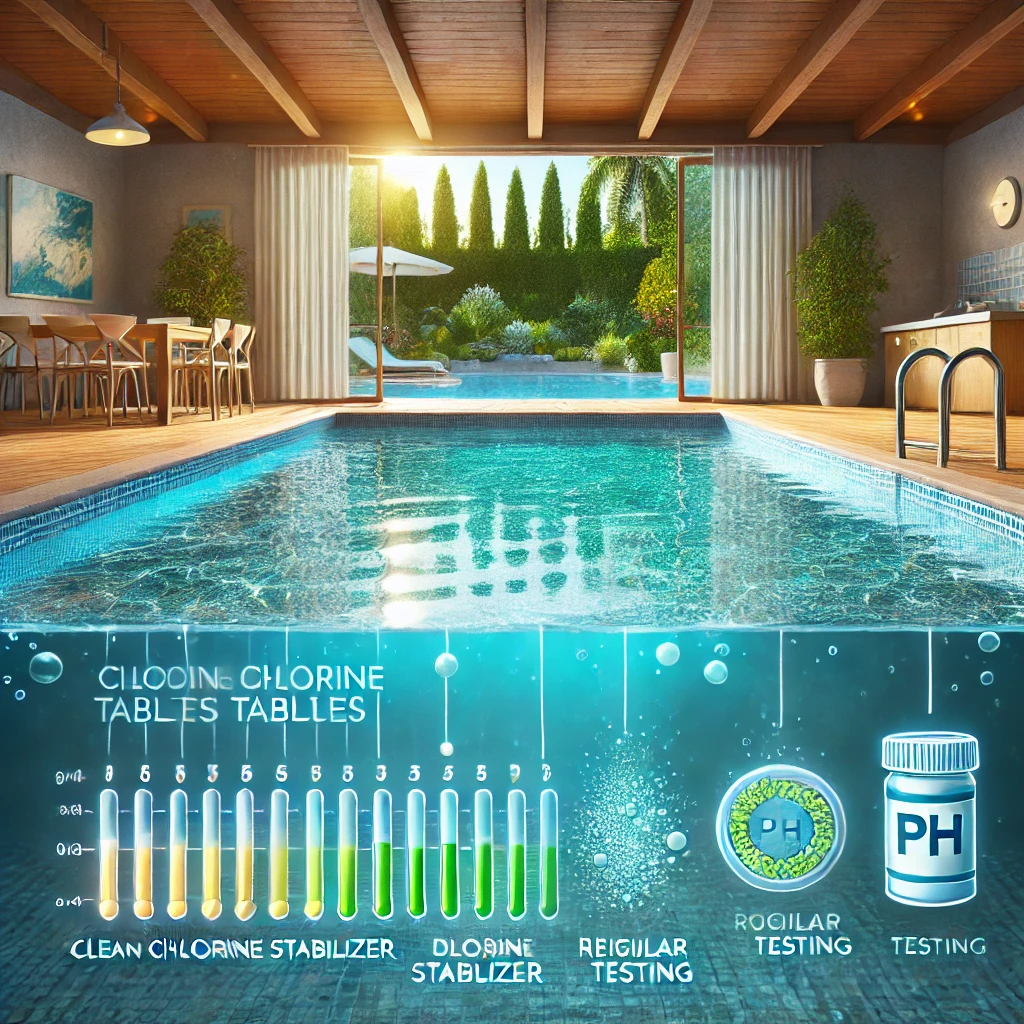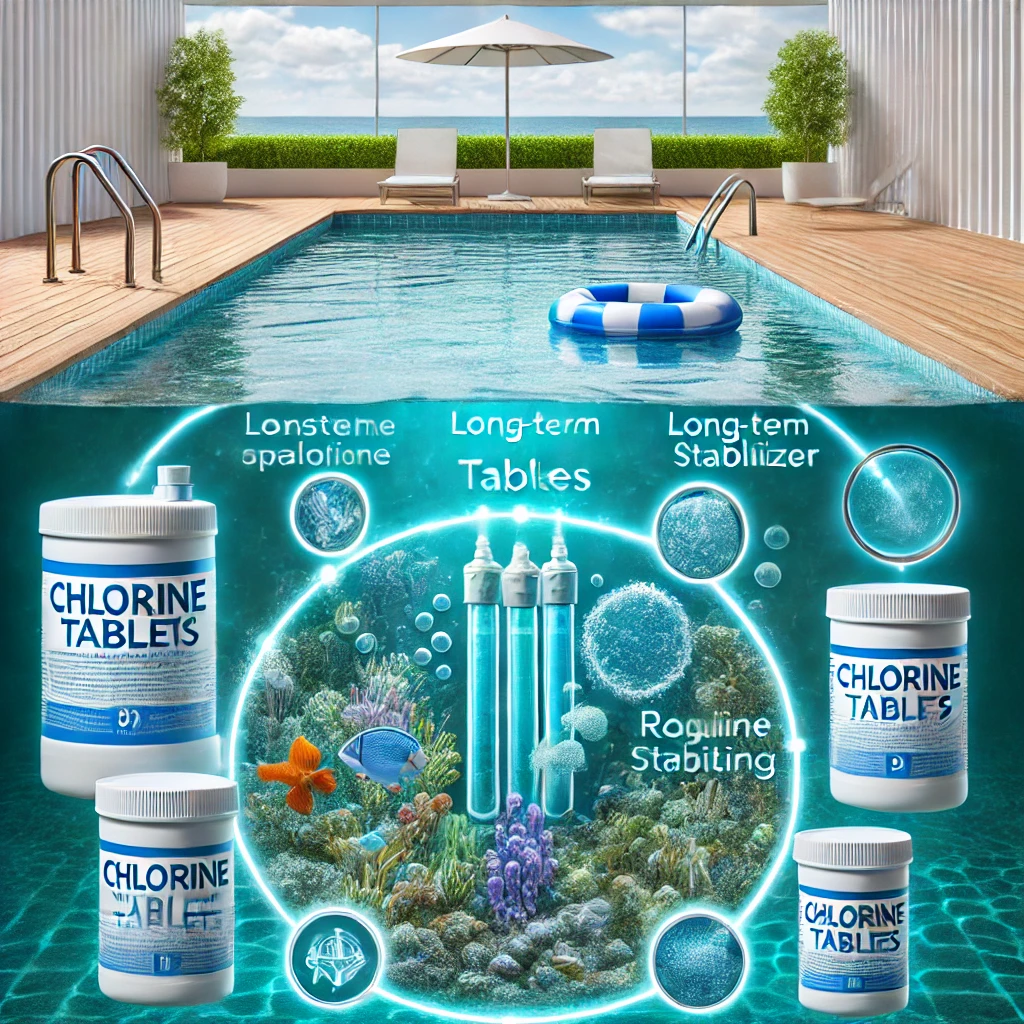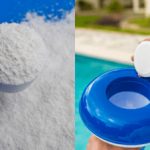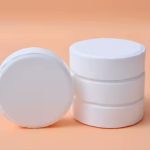Chlorine tablets are a cornerstone of pool maintenance. They help keep the water clean and safe for swimming. However, understanding the long-term effects of chlorine tablets on pool water quality is essential. Proper use ensures a consistently clear and healthy pool environment. It explores how pool chlorine tablets influence water quality over time.

I. The Primary Function of Chlorine Tablets
Chlorine tablets are designed to disinfect pool water. They slowly dissolve, releasing chlorine into the water. This chlorine kills bacteria, viruses, and other harmful microorganisms. Additionally, it helps prevent the growth of algae. By maintaining the right chlorine levels, pool owners can ensure a safe and enjoyable swimming experience. However, the long-term effects depend on consistent and correct usage.
II. Maintaining Consistent Chlorine Levels
For chlorine tablets to be effective, maintaining consistent chlorine levels is crucial. Ideally, chlorine levels should be between 1 and 3 parts per million (ppm). Regular testing is necessary to monitor these levels. When used correctly, chlorine tablets release chlorine gradually, maintaining the desired concentration. This steady release helps protect the pool from contamination over time. Pool chlorine, when properly managed, provides long-term water clarity and safety.
III. Preventing Algae Growth
One of the significant long-term benefits of chlorine tablets is preventing algae growth. Algae can turn pool water green and make surfaces slippery. Chlorine tablets inhibit algae formation by continuously releasing chlorine into the water. This preventive action keeps the water clear and reduces the need for additional chemical treatments. By using pool chlorine tablets regularly, pool owners can avoid the hassle of dealing with algae infestations.
IV. Reducing the Need for Frequent Shock Treatments
Chlorine tablets also reduce the need for frequent shock treatments. Shock treatments involve adding a large amount of chlorine to the pool at once. This process is necessary when chlorine levels drop too low, or when the pool is heavily used. However, with regular use of chlorine tablets, chlorine levels remain stable. This stability minimizes the need for shocks, making pool maintenance easier and more efficient over the long term.
V. Impact on Pool Equipment and Surfaces
Chlorine tablets, while essential for water quality, can have long-term effects on pool equipment and surfaces. Over time, high chlorine levels can cause certain materials, such as vinyl liners, to degrade. It’s important to monitor chlorine levels closely to prevent over-chlorination. By balancing the use of pool chlorine tablets with regular testing, you can protect your pool’s infrastructure. Proper maintenance extends the life of your pool equipment and surfaces.
VI. The Role of pH in Chlorine Effectiveness
pH levels significantly influence the effectiveness of chlorine tablets. The ideal pH range for pool water is between 7.2 and 7.6. When the pH is too high or too low, chlorine becomes less effective. Regular testing and adjustment of pH levels are necessary to ensure that chlorine tablets work as intended. Consistently balanced pH levels enhance the long-term benefits of pool chlorine, ensuring that the water remains clean and clear.
VII. Chlorine Stabilizers: Extending Chlorine’s Lifespan
Using a chlorine stabilizer, such as cyanuric acid, can extend the effectiveness of chlorine tablets. Stabilizers protect chlorine from being broken down by the sun’s UV rays. This protection is particularly important for outdoor pools. Without stabilizers, chlorine levels can drop rapidly, reducing its long-term impact. By adding a stabilizer, pool owners can maximize the longevity of pool chlorine, ensuring consistent water quality over time.
VIII. Environmental Considerations
While chlorine tablets are effective, it’s important to consider their environmental impact. Overuse of chlorine can lead to chemical runoff, which may harm local ecosystems. To minimize this impact, pool owners should adhere to recommended chlorine levels and avoid excessive use. Additionally, using eco-friendly alternatives when possible can help reduce the overall environmental footprint of pool maintenance. Balancing effective pool chlorine use with environmental responsibility ensures long-term sustainability.
IX. Health and Safety Implications
The long-term use of chlorine tablets also has health and safety implications. When used correctly, chlorine tablets effectively kill harmful bacteria and pathogens, protecting swimmers from waterborne illnesses. However, over-chlorination can lead to skin irritation, red eyes, and respiratory issues. It’s important to maintain chlorine levels within the recommended range to avoid these problems. By carefully managing pool chlorine, pool owners can provide a safe swimming environment for everyone.
X. Cost-Effectiveness of Chlorine Tablets
Chlorine tablets offer a cost-effective solution for long-term pool maintenance. They are easy to use and provide consistent chlorine levels, reducing the need for additional chemicals. Over time, this consistency helps avoid costly repairs and additional treatments. Investing in high-quality pool chlorine tablets can save money in the long run by maintaining optimal water quality with minimal effort.

XI. Conclusion
In conclusion, chlorine tablets are essential for maintaining long-term pool water quality. They provide consistent disinfection, prevent algae growth, and reduce the need for frequent shock treatments. By balancing chlorine levels with proper pH management and using stabilizers, pool owners can maximize the effectiveness of pool chlorine. While it’s important to be mindful of potential impacts on pool surfaces and the environment, the benefits of using chlorine tablets far outweigh the drawbacks. With proper use, chlorine tablets ensure that your pool remains clean, safe, and enjoyable for years to come.





